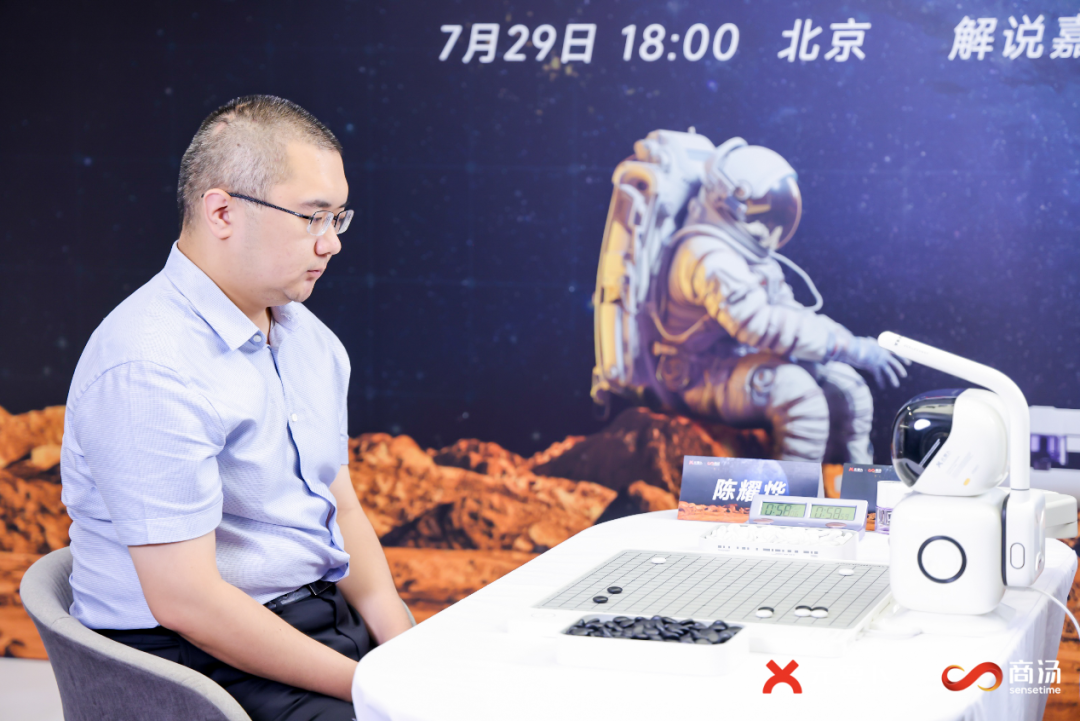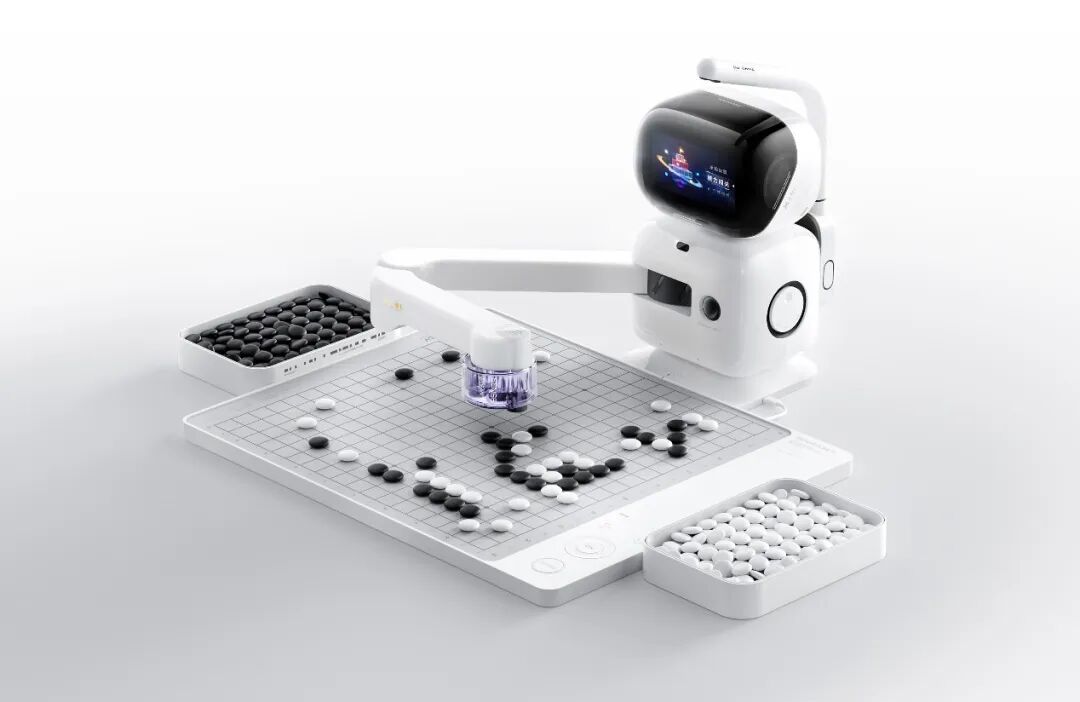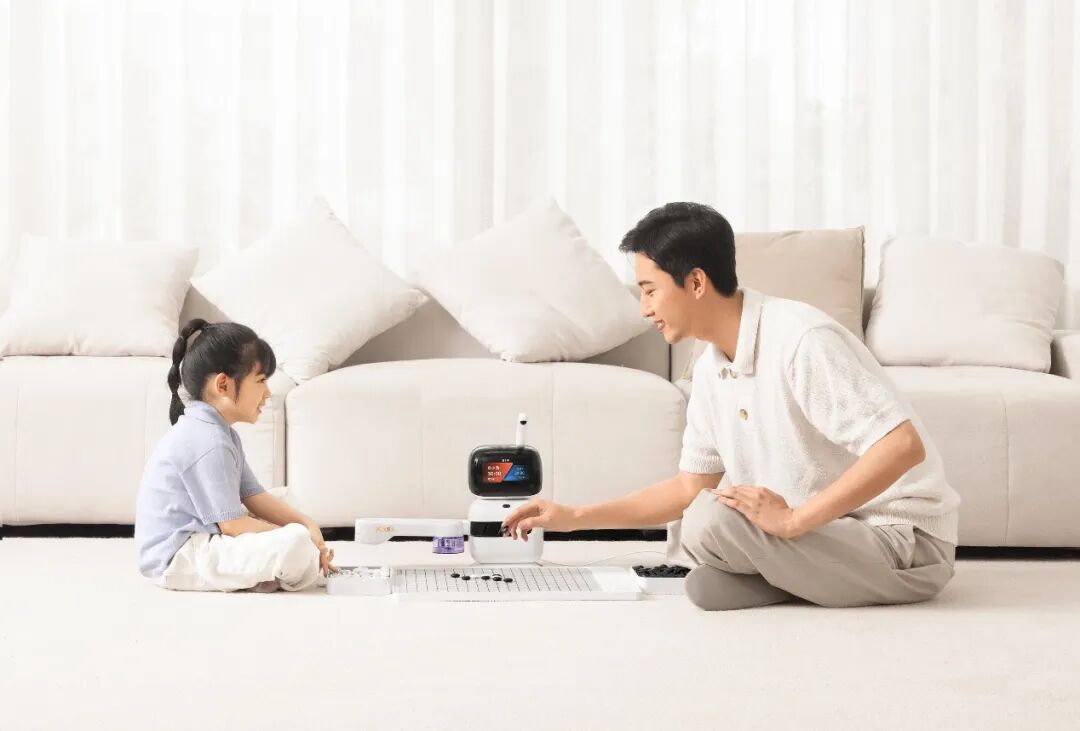Seven years ago, AlphaGo’s victory over the human Go champion caused a huge stir. On one hand, people were amazed at the development of AI, which had finally surpassed human capabilities. On the other hand, there were expectations and even concerns about the impact of artificial intelligence on human destiny. Now, seven years later, AI has made tremendous progress, and recently, SenseTime’s ‘Yuanluobo SenseRobot’ AI chess robot defeated a human Go champion again. This victory is significant because, at least in the field of Go learning, artificial intelligence has finally begun to enter the homes of ordinary people.

From Unusual to Common
Seven years ago, AlphaGo was not just a simple artificial intelligence; it was backed by a supercomputer with enormous power consumption. Although AlphaGo gradually faded from the public eye after defeating several human players, the wave of artificial intelligence it initiated did not stop. In these seven years, there have been significant developments and advancements in various fields, and this year has seen the emergence of large models, which are even more popular AI products.
However, aside from these grand narratives, the real application of artificial intelligence is still quite distant from daily life. Returning to the original task of playing Go, the birth of ‘Yuanluobo’ may be the first attempt to bring an AI capable of defeating world champions into the homes of ordinary people.

This time, ‘Yuanluobo’ engaged in a public match, which was a very serious competition. The player was Chen Yaoye, a three-time world champion and professional 9-dan Go player, and the referee was Fan Hui, a three-time European Go champion and current head coach of the French Go team. Nie Weiping, the honorary chairman of the Chinese Go Association and ‘Go Sage’, also provided commentary.
From the overall specifications of the event, the lineup of players and guests can be compared to a world-class competition, which shows the importance the Go industry places on this match. Of course, the final victory of ‘Yuanluobo’ was not particularly surprising; what was more important was the level and tactical performance displayed by both sides, which allowed people to see the true strength of ‘Yuanluobo’.

I observed this match on-site and interviewed the participating players afterward. Chen Yaoye, the 9-dan player, stated that losing to artificial intelligence was not unexpected, but the experience of playing against ‘Yuanluobo’ was very surprising because it truly felt like playing against a human. Although he had previously used AI to play Go, he often had to use his wife as a human arm to simulate the rhythm of playing against a person.
Moreover, ‘Yuanluobo’ is not only powerful but also an AI robot that uses a mechanical arm to play Go, making the experience of playing feel incredibly close to that of a human. This is clearly an advantage that other AIs do not possess, allowing ‘Yuanluobo’ to achieve human-like Go teaching.
From High Barriers to Low Entry
Contrary to many predictions at the time, after AlphaGo defeated humans, the Go industry did not decline but instead welcomed a new wave of development. If learning Go was previously a skill with a high barrier to entry, now both ordinary children starting out in Go and advanced practitioners can use artificial intelligence to improve their skills.
This greatly lowers the barriers to learning and practicing Go, allowing more players to stand out. The AlphaGo vs. Go champion match has become an advertisement for Go, sparking interest in the game and encouraging many to start their Go learning journey, especially with the help of AI.

The birth of ‘Yuanluobo’ has truly lowered the barriers for young people to learn and practice Go. Its fully anthropomorphic design and playing style allow children to practice extensively with AI at home after learning from their teachers in class. Especially with the comprehensive and detailed upgrade courses from beginner to advanced levels, it effectively implements the entire process from amateur to professional.
Learning Go requires a lot of specialized exercises and practice, and ‘Yuanluobo’ has made significant strides in this area, offering a wealth of practice exercises, human-machine matches, and online play features. The challenge-based approach allows children to say goodbye to tedious learning and practice, engaging better in interest-based learning. Moreover, this real entity match can effectively immerse children in learning, free from distractions from phones and electronic devices, enhancing focus while also protecting their eyesight.
Some may wonder, regardless of how well one learns, if they ultimately cannot beat AI, what is the point of learning? In an interview, Chen Yaoye shared a thought that resonated with me: although various Go AIs are difficult to defeat after the mid-game, different AIs have different bugs. If you can exploit these bugs, it is quite easy to win against AI. However, playing this way is not truly playing Go; it is meaningless to play just for winning or losing. The key to playing against AI is to improve oneself, which is the true spirit of Go.
From Development to Practical Application
AI is great, but the key is still to implement it. No matter how well AI can answer various human questions, the most crucial step to forming productivity is to have a suitable implementation form to better realize the value of AI itself.‘Yuanluobo’ AI chess robot is a very good attempt. Before Go, they had launched a chess robot that was also very successful.
This product is user-friendly for elderly, middle-aged, and young users alike. Besides being easy to operate, maintaining people’s original chess habits is a crucial aspect. The newly launched Go robot has undergone a complete redesign and upgrade, especially in terms of the different characteristics of chess and Go pieces, which involves a high level of technical content in the design of different mechanical arms.
‘Yuanluobo’, equipped with visual recognition, mechanical arms, and voice interaction, has brought about a revolutionary human-machine interaction method, showcasing the true practical application of home robots. Considering that visual recognition, voice interaction, and physical screens, speakers, and mechanical arms can be applied in more content areas, it is exciting to anticipate what other functions and features may emerge in the future.
I even think that we might eventually see designs similar to Transformers, where different functions can be achieved by swapping out different components. This way, artificial intelligence has the opportunity to penetrate more home scenarios, adding more technological brilliance to people’s lives.
However, at present, Shen Hui, the head of the Innovation Institute at SenseTime, stated that the focus should still be on the functions of chess and Go themselves, continuously upgrading and iterating the product to achieve a better user experience. I believe this strategy is very accurate because only a product that can become a consumer hit, an industry essential, and truly establish itself will allow future home robots to take root and become a household necessity.
Currently, it is said that major Go training institutions have begun to purchase ‘Yuanluobo’ AI chess robots in bulk, making them important teaching tools in Go learning. With the support of these official institutions, I believe more Go enthusiasts will become loyal users of the ‘Yuanluobo’ AI chess robot.
The development of intelligent robots is also in full swing, and similar products are often seen in public places, hotels, and banks. However, overall, these current robots are still somewhat clumsy, with limited functionality, mostly just being smart speakers on wheels or mobile shopping carts. Ultimately, I believe that only with refined mechanical arms can precise operations be truly undertaken, and with visual recognition for hand-eye coordination can AI function and add value in more fields. ‘Yuanluobo’ may be small, but it is well-equipped, and starting from the point of playing Go is a clever move. How it can extend more functional applications in the future is worth looking forward to.
Previous Recommendations
Huawei is set to launch HarmonyOS 4, ushering in a new system and a new era.
The large model learning machine, iFlytek LUMIE 10 series, promotes comprehensive AI upgrades in education.
The spatial interaction revolution in the intelligent era, Zigbang Zhihang redefines human living relationships.
China-Africa cooperation opens up the next decade, with endless prospects.
Where is the future of smartphones? Honor Zhao Ming provides the ultimate evolution direction at MWC Shanghai.
Sports headphones can also have better sound quality; 1MORE’s S50 sports Bluetooth headphones open a new track.
Experience upgrades, domestic products rise, and live streaming sales lead consumer recovery with mature standards.
‘A Beautiful Life is Pieced Together’; Pinduoduo promotes high-quality transformation through characteristic industries.
Alibaba: Reform stability relies on people, and innovation also relies on people.
From exploring new to pushing new, Tmall International helps Thai new generation brands.
iFlytek’s Spark Cognitive Model V1.5 is here, accelerating the lead with action.
Honor 618 welcomes a good start, with long-term logic behind high-quality growth.
Super 618, Li Jiaqi and Meione go beyond ‘live streaming sales’.
Being an industry pioneer, Mengbaihe collaborates with ‘The Three-Body Problem’ to create truly intelligent health bedding.
Making every communication valuable, iFLYBUDS Nano+ uses AI to break through scenarios.
From screen to reality, Lesun Robotics has carved out its own path.
Alibaba evolves again, continuously innovating corporate governance.
Huawei’s tablet launches a flagship, the new Huawei MatePad Air launches an all-out attack on the iPad.
360 and Zhizhu AI announce cooperation; can the two replicate ChatGPT’s success?
Embracing the foldable screen era, Sohu News stays true to its original intention, providing an excellent large-screen experience.
Account Introduction
From 2015 to 2022, Weibo was named one of the top ten most influential internet accounts for eight consecutive years.
2021 Baijiahao Annual Influential Creator.
2021 Baidu APP Annual Personal Author.
2021 Yidian Zixun Annual Top Ten Technology Creators.
2020 Baijiahao Top 100 Creators.
2020 People’s Daily Technology Field Annual Creator.
2020 Yidian Zixun Yidianhao Annual Influential Author.
2020-2021 Business New Knowledge New Star Creator.
2020 Donews Lingmu Award.
2020 Baijiahao Top 100 Creators.
2017-2019 KLAU’s Most Influential Technology Internet Self-Media.
2019 Baidu Baijiahao Annual Quality Personal Creator.
2019 Economic Observer Annual Financial Self-Media.
2019 Donews Annual Top Ten Column Authors.
2019 Blue Media Annual Elite 30.
2018 Baidu Dynamic Influential Person.
2018 Annual Best Self-Media Person in China’s Finance and TMT Industry.
2017-2018 Best Media Person Award from Media Training Camp.
2017 Blue Whale Self-Media Alliance Annual Technology Big V.
2017 Self-Media Author Geek Award.
2016 Sina Technology Self-Media Leader.
2015 Phoenix Annual Self-Media Person.
2015 Sutu Network New Media Alliance Top Ten Self-Media.